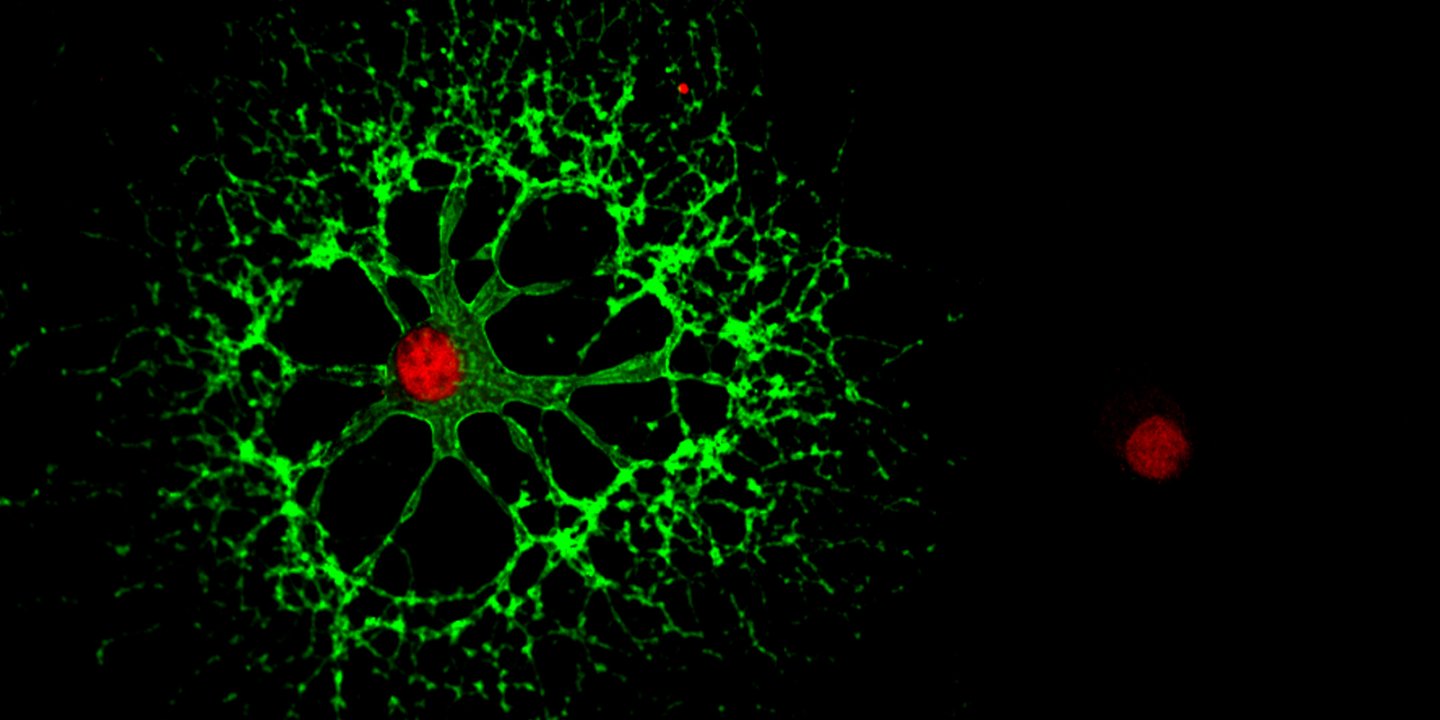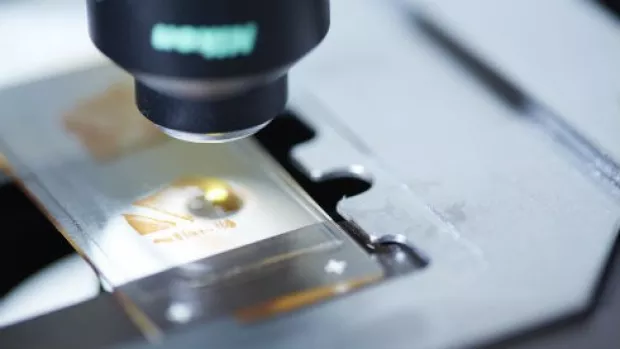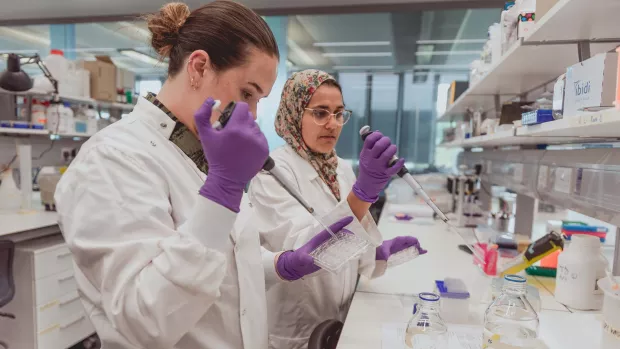
Important differences in myelin making cells discovered
Researchers have shown for the first time that not all our myelin-making cells are the same. They also found that the mix of these cells was different in people with MS.
Different genes switched on in MS
The team, including researchers from our Edinburgh Centre, studied myelin making cells in brain tissue donated by people with and without MS, including from the MS Society Tissue Bank.
Although all cells in the body have the same DNA, different genes are switched on in different cells. This results in the cell performing different functions.
Using an advanced technique called single nuclear RNA sequencing they were able to take a snapshot of which genes were switched on in each brain cell.
The study showed that human myelin making cells, called oligodendrocytes, can be split into distinct groups. And that the ratio of these groups was different in people with MS compared to those without.
Professor Charles ffrench-Constant, from the University of Edinburgh, said “We found that oligodendrocytes are a diverse population of cells and that different types are likely to have different functions in the brain.”
An important advance in understanding MS
In MS, the protective myelin coating around nerve cells is damaged. Understanding how brain can repair this is the key to developing treatment to slowing and stopping disability progression.
Professor Anna Williams, also from our Edinburgh Centre, said: “Understanding which types of oligodendrocytes are most beneficial in repairing myelin will be crucial for maximising the chances of developing much-needed treatments for MS.”
What this means for people with MS
Our top research priority is finding treatments that can slow or stop disability progression in MS.
Dr Susan Kohlhaas, our Director of Research, said: “Those living with progressive forms of MS desperately need new options that repair myelin damage and halt progression. “We believe that one day we can stop MS and projects like this are going to make that happen more quickly.”


